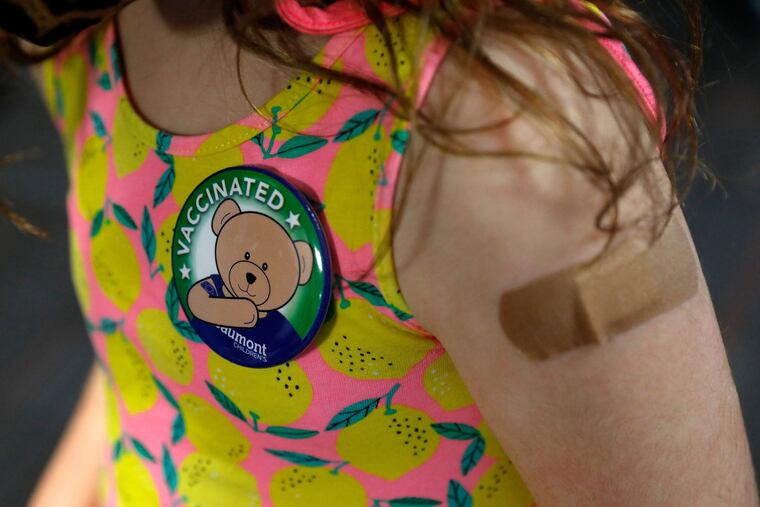The U.S. begins vaccinating young children against COVID-19
President Joe Biden and first lady Jill Biden were scheduled to visit a District of Columbia health clinic to highlight the recommendation that even the youngest children need to be vaccinated.

Eighteen months after a New York nurse received the first U.S. COVID-19 vaccination, immunizations became available Tuesday for about 19 million children between the ages of six months and five years, the last group of Americans to be afforded that protection against the coronavirus.
Pediatricians, drugstores and community vaccination centers prepared to administer first doses of two vaccines to children — the Pfizer-BioNTech product to children ages 6 months through 4 years and the Moderna vaccine to children ages 6 months through 5 years old.
President Joe Biden and first lady Jill Biden were scheduled to visit a District of Columbia health clinic Tuesday afternoon to highlight the recommendation that even the youngest children need to be vaccinated.
For parents eager to have their children vaccinated, Tuesday was the end of a long, difficult period when babies, toddlers and preschool-aged children did not have access to vaccines that have proven highly effective in preventing death and hospitalization for the rest of the population.
But a Kaiser Family Foundation COVID-19 Vaccine Monitor poll released in May found them to be a distinct minority. Just 18% of parents with children under 5 said they were eager to get the youngsters vaccinated immediately. More than a third of parents — 38% — said they planned to see how the vaccine works in other children and 27% reported they would "definitely not" have their children vaccinated. Another 11% they would do so if required.
The survey was taken before the Food and Drug Administration found the vaccines safe and effective for the youngest children and the Centers for Disease Control and Prevention gave them the green light Saturday.
About 13.5 million children have tested positive for the virus, according to the American Academy of Pediatrics, offering them some protection against it. According to federal health data that analyzed blood tests, the number is even higher — by the end of February it showed that 3 out of 4 children nationwide had been infected with the coronavirus.
But health authorities say all children should be vaccinated because it is the best way to provide children with durable protection and reduce the chances of another infection and complications.
Children are less likely than other age groups to become seriously ill from the virus, but they are not invulnerable. More than 1,000 have died, more than 40,000 have been hospitalized and more than 8,500 have suffered a condition called multisystem inflammatory syndrome (MIS-C), which can cause inflammation of the heart, lungs, kidneys, brain, eyes and other organs, according to the CDC.
Almost 67% of the U.S. population is vaccinated — a proportion that has barely increased in recent months despite the efforts of government and private health officials. The virus has killed more than 1 million Americans, the largest known total of any nation in the world.